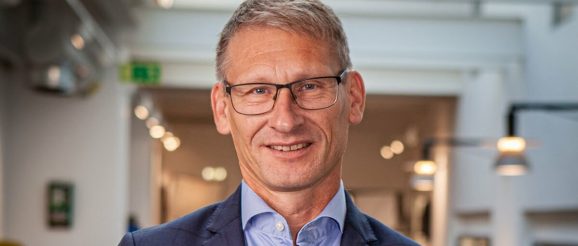Sweden-based energy company Stockholm Exergi receives €180M from EU’s Innovation Fund: Here’s why

Sweden-based Stockholm Exergi, an energy company that plans to build Europe’s first large-scale negative emissions plant, announced on Friday that it has received €180M from the EU’s Innovation Fund.
According to Stockholm Exergi, once completed, the Bioenergy with carbon capture and storage (BECCS) plant will capture 800,000 tonnes of biogenic carbon dioxide every year. The facility will contribute to Sweden’s, and Swedish and international companies’ goals of achieving net-zero emissions.
About EU’s Innovation Fund
The EU’s Innovation Fund is one of the world’s largest funding programmes for demonstrating innovative technologies that help reduce carbon dioxide emissions. The goal of the fund is to bring industrial solutions to the market between 2020 and 2030 to reduce carbon dioxide emissions in Europe and support its transition to climate neutrality.
A total of 311 projects applied for funding in this current round and seven were selected to share the allocated €1.1B fund.
Stockholm Exergi’s BECCS project
Stockholm Exergi is funding and building a full-scale BECCS plant at its KVV8 bio-cogeneration plant in Stockholm. The BECCS plant will have a capture capacity of almost 800,000 tonnes of carbon dioxide per year.
The company says that to ensure that the project’s entire value chain is included in the initiative, it is necessary that agreements are signed regarding the transport and permanent storage of captured carbon dioxide.
These negotiations are ongoing and will be a key aspect of work on preparing for the decision on how the project will be funded, which is planned for 2023.
Stockholm Exergi CEO, Anders Egelrud, says, “We’re working intensively on reaching full financing of the project and have several dialogues with companies that look to purchase CRC to compensate or neutralise their remaining emissions and become “net-zero”. Our goal is to enter into agreements with potential buyers ahead of our final investment decision in 2023.”
To secure financing of the BECCS facility, Stockholm Exergi believes that three main financing streams are needed, the support from the EU Innovation Fund being one of them. The other two sources are the Swedish state through a so-called reverse auction, the details of which are due to be decided in 2022; and income from the sale of so-called Carbon Removal Certificates (CRC) on the voluntary carbon market.
The BECCS project
The EU’s Innovation Fund has chosen to support seven European projects that contribute to combating climate change with innovative technologies. Stockholm Exergi’s project to establish a large-scale plant for the separation and permanent storage of biogenic carbon dioxide is the only one of the seven projects that deploys BECCS technology.
Anders Egelrud says, “The support from the EU Innovation Fund is very important to us. It means that we can maintain our timeplan for opening the full-scale plant. The support also represents a clear recognition of the project, a recognition that is particularly important in our work to be a catalyst for establishing a market for negative emissions.”
Carbon capture is being developed as an addition to Stockholm Exergi’s already existing bio-cogeneration plant in Hjorthagen in Stockholm. At its research facility, which opened in 2019, Stockholm Exergi has been able to demonstrate the extent of the project’s innovation with ‘high levels’ of energy efficiency and sustainability.
Tests show that it has been possible to capture almost 90 per cent of biogenic carbon dioxide at high energy efficiency levels due to extensive heat recovery and reuse towards Stockholm’s district heating network.
The company says, “More than 800,000 Stockholmers and more than 400 hospitals, data centres and other businesses are connected to the district heating network, connected to our heating and cogeneration plants from Högdalen in the south to Brista in the north. With a joint effort, we drive Stockholm forward with the potential to become the world’s first climate-positive capital.”
